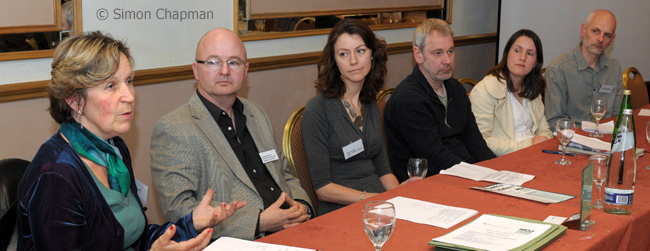
FORTY years after the Equal Pay Act, women working full-time in the UK are still paid on average 16.4% less per hour than men.
The full-time pay gap between women and men is equivalent to men being paid all the year round while women work for free after 2 November. Equal Pay Day is a national day of action to tackle the gender pay gap!
The NUJ won one of the country’s first equal pay agreements, getting pay parity for women journalists on Fleet Street in 1918.
Now, the union is encouraging members to sign the Fawcett Society’s equal pay petition and organise events or workplace activity on Equal Pay Day – this coming Tuesday.
Join the Fawcett Society and add your voice to the UK’s leading campaign for gender equality.
Women in the United Kingdom still earn and own less than men. Even though legislation on implementing equal pay has been in place for 40 years, the gender pay gap in Britain remains among the highest in the European Union.
One in every five women in the United Kingdom lives in poverty. Women are more likely to be employed in low paid, part-time work. Part-time jobs are typically low paid and have fewer prospects for promotion and access to training.
Removing barriers to women working in occupations traditionally done by men and increasing women’s participation in the labour market could be worth between £15 billion and £23 billion or 1.3% to 2% of GDP.
The Equality Act 2010 offers tools that could help us close the pay gap. Some of these measures were implemented on 1 October 2010, and we welcome these steps towards equal pay. For example, secrecy clauses on pay are now mostly banned, so that employers are no longer allowed to stop employees from talking about their pay if they suspect they are being discriminated against (eg women who think they are paid less than men).Unfortunately, important parts of the Equality Act have been put on hold by the Coalition Government.
More about Equal Pay Day from the Fawcett Society here
More about the NUJ’s equal pay campaign here
Equal pay in Europe information on the ETUC website
The history of equal pay campaigns at the NUJ
